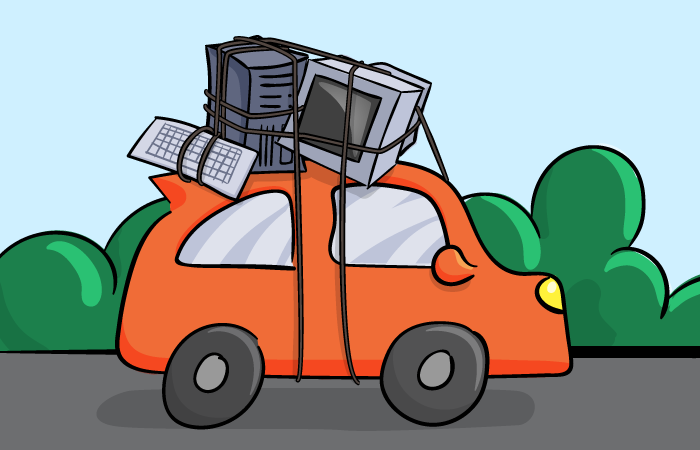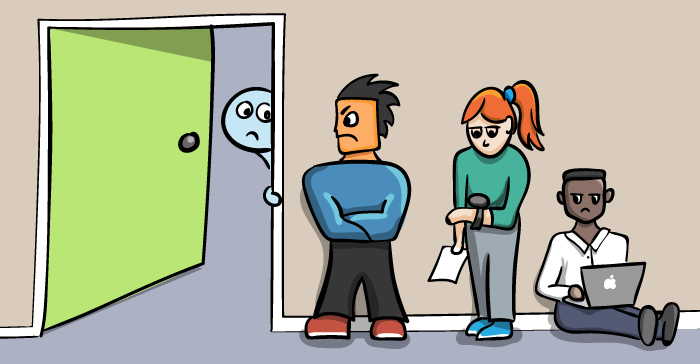How I Fight Procrastination and Usually Win
Procrastination is something I’ve struggled a lot with over the years. Check out my top 3 tips on how I (usually) manage to beat it! By Bill Morefield.
Sign up/Sign in
With a free Kodeco account you can download source code, track your progress, bookmark, personalise your learner profile and more!
Create accountAlready a member of Kodeco? Sign in
Sign up/Sign in
With a free Kodeco account you can download source code, track your progress, bookmark, personalise your learner profile and more!
Create accountAlready a member of Kodeco? Sign in
Contents
How I Fight Procrastination and Usually Win
25 mins
- The Good Side of Procrastination
- 1) Lack of Time to Overthink
- 2) Allows the Dust to Settle
- 3) Starves Out Bad Ideas
- This Only Works If You Make a Conscious Decision
- The Bad Side of Procrastination
- Why Do You Procrastinate?
- 1) I Procrastinate Because I Feel Overwhelmed
- 2) I Procrastinate Because I Don’t Want To Do It
- 3) I Procrastinate Because I’m Afraid of Failure
- How I Fight Procrastination and Usually Win
- 1) Managing Distractions
- 2) Managing Time
- 3) Managing Energy
- Where to Go From Here?
My “aha” moment with procrastination was in college, when I had a huge research paper due immediately after the November Thanksgiving holiday. “No problem”, I thought when it was assigned, “this is more than two months away!”
At first, it started out great: I chose a topic quickly and completed my research well before November arrived. But then came procrastination!
You can imagine what happened during my Thanksgiving holiday. Rather than enjoying time with my family, I had to work all weekend writing my paper. I did take a break for the turkey dinner, though!
I now consider myself a pretty productive person, but I still fight procrastination — and it appears I’m not alone. The results of the survey I conducted as research for this article tell the tale:
- 85% of respondents procrastinate at least occasionally.
- Nearly 25% of respondents procrastinate often or more frequently.
Do you fall in that 85% of people — or even in the top 25% of procrastinators from our survey? You’re in good company.
In this article, I’ll explain some tips I’ve learned in my struggles with procrastination over the years, which should help you get your next project done on time. Trust me, you’ll thank me next Thanksgiving.
The Good Side of Procrastination
Before we get into tips about fighting procrastination, I thought it would only be fair to mention that procrastination isn’t always bad; it has a good side too.
In fact, sometimes there are actually benefits to putting off a task until the last minute – when you take the right approach. Let’s take a look at the top 3.
1) Lack of Time to Overthink
I’ve developed a good packing routine for my short trips, but I often overthink what I need to take on longer trips. The longer I have to pack, the more I second-guess myself and pull out my suitcase to repack.
A few years ago, I packed days in advance of a week-long trip to Death Valley, California. With daytime temperatures over 100 degrees and nights below freezing, packing properly for the extremes was a challenge.
No sooner than I’d finished packing, I immediately started overthinking what I’d packed. “What if it got colder than forecast? What if I ended up taking a longer trip? What if…?” Before I knew it, I had a suitcase that wouldn’t close. I had to repack everything the night before — and ended up pretty much with the exact same things as when I’d started.
All I’d accomplished by packing early was a lot of wasted time. Delaying tasks that you tend to obsess over reduces the time available to overthink what you’re doing.
2) Allows the Dust to Settle
Procrastinating can also give you more time to gather information about the task at hand. When faced with tasks that are directly impacted by things beyond my control, I find it saves time to wait until those outside events have settled as possible.
For example, when integrating a project with an API still under development, I’ve found that completing the API integration tasks earlier is rarely worth the time. There’s too much of a risk those implementation details will change near the end of the project.
3) Starves Out Bad Ideas
Finally, it frequently pays to procrastinate on tasks of questionable validity.
Have you ever been faced with a task you can’t say no to, for political or personal reasons, but you know is a waste of time, effort, or just a bad idea overall? Sitting on that task usually means the team will forget about the task (since it wasn’t important anyway), or people will eventually come to their senses and realize it was a bad idea to start.
It’s not a terribly moral high ground, to be sure, but I’ve dealt with contracts and scenarios where it can be easier to wait and let a task go away, than to waste time arguing against it.
This Only Works If You Make a Conscious Decision
Note that all three of these cases only work when you make a conscious decision to delay tasks for a future net benefit, rather than just letting it happen.
For example, you might think:
- “I know I can do this at the last minute and get a better result.”
- “It’s probably worth waiting on this because too much is in flux.”
- “This is a dumb idea; I’ll try waiting in hopes that it’s deemed not important.”
In these situations, procrastination isn’t hurting your ability to get things done; it’s actually improving your ability to get things done.
OK, so there are cases when procrastination can be good. But what about its bad side?
The Bad Side of Procrastination
Putting important, doable tasks off until a later time has real consequences: the task must be rushed, resulting in lower quality results. Put a task off too long, and you’ll miss an important deadline.
Why is that bad? Well, missed deadlines in a team environment delay others who are waiting for your work — and you’ll end up with a line of angry coworkers outside your door!
Poor results and missed deadlines can result in lost contracts and wasted money for freelancers and consultants. Rushing at the last minute can mean important steps are missed or glossed over.
Kaden Wilkinson (@kdawgwilk) shared a story about rushing a product release:
I’m sure we all have a similar story, where due to procrastination we ended up with a problem that wouldn’t have happened if we had started earlier!
Why Do You Procrastinate?
Understanding why you are procrastinating on a task can help determine the best approach to overcome the procrastination.
The survey highlighted many common reasons for procrastinating — they oddly line up quite neatly with my own reasons for procrastination. Here are the top 3 reasons people gave.


